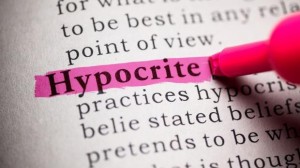Forbes Calls Out the CDC for Double Standards and Hypocrisy in Ecig Policies
According to a recent report from the CDC, heroin use had doubled in the last ten years and the number of overdoses has quadrupled since 2002. The government has issued a massive response with multiple hearings in Congress, aggressive treatment regimes with opiate replacements, and needle exchange programs. This all sounds like a step in the right direction, but it also causes some confusion when you compare the response to heroin with the current response to electronic cigarettes.
The CDC is quick to approve methadone as a replacement for heroin to prevent death and disease, but smoking kills thousands more people each year than heroin ever has or will. So why is the CDC so fast to condemn and demonize electronic cigarettes? In a recent Forbes article, the CDC was questioned for their strange approach to ecigs in light of public health. “The CDC supports harm reduction for opiates… but warns smokers to stay away from e-cigarettes or smokeless tobacco. This flies in the face of the much-replicated data we have about the safety of these products relative to cigarettes.”
Common sense shows that vaping is a smart alternative to help smokers step away from tobacco use. Ecigs are battery operated so there is no smoke, no carcinogenic tars or gases, and no combustion. Forbes said, “The risks of cancer, lung disease, and heart disease are vastly diminished compared to smoking.”
The main ingredients in ecigs are nicotine, flavorings, and propylene glycol, a substance approved by the FDA for use in asthma inhalers, toothpaste, cosmetics, and many foods. For all intents and purposes, ecigs are no more dangerous than nicotine gums and many actually contain far less nicotine.
Yet the CDC points to ecigs as a gateway to smoking for children and rejects the possibility that vaping could be a smart step towards smoking cessation. Agencies like the American Lung Association add to the problem with their own fear mongering tactics. The World Health Organization has explicitly called ecigs a “threat” and the state of California has launched an all out war against public vaping.
With so much misinformation swirling from trusted sources, it’s really no surprise that smokers are hesitant to try switching to ecigs. Yet studies have shown that vaping is a much safer and healthier alternative to traditional cigarettes. If you look at how the UK is handling the ecig issue, you get a whole different perspective. Public Health England has publicly endorsed electronic cigarettes and is encouraging doctors to recommend vaping to their patients that smoke. Officials are even considering making ecigs available for free through the NHS.
Ultimately, American health groups have made some huge mistakes in the way they are handing ecigarettes. If they would take a similar approach to smoking cessation as they take to heroin use, it could result in millions of lives saved. Are ecigs harmless? Probably not completely. But you could also argue than methadone is quite dangerous, but it is still routinely promoted as the answer for heroin addiction.
Why do you think the CDC is so determined to attack electronic cigarettes? Do you think American health agencies are treating vapers unfairly?
Source : http://www.churnmag.com/news/forbes-calls-out-the-cdc-for-double-standards-and-hypocrisy-in-ecig-policies/


